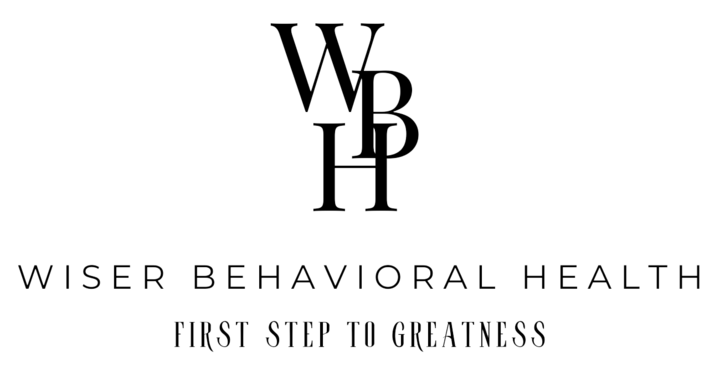When a mental health crisis strikes, every moment matters. Whether you or a loved one are experiencing suicidal thoughts, severe depression, psychosis, or a manic episode, knowing where to turn can be the difference between chaos and calm, between fear and hope. That’s why understanding the role of Middle TN Mental Health Hospitals is so critical.
At Wiser Behavioral Health, we support individuals through every stage of mental health recovery, including referrals to inpatient hospitals when needed and follow-up with outpatient services. As one of the top rehab centers for mental health disorders in Middle Tennessee, we’re here to ensure that you never have to face these challenges alone.
This comprehensive guide explores the role of Middle TN Mental Health Hospitals, when you might need one, the top options available in the region, and how facilities like Wiser Behavioral Health complement hospital-based care to offer a complete continuum of treatment.
What Are Mental Health Hospitals?
Mental health hospitals are specialized facilities that provide short-term, intensive care for individuals experiencing acute psychiatric crises. Unlike outpatient treatment or even residential programs, these hospitals offer round-the-clock medical supervision, psychiatric evaluations, and stabilization services.
These facilities are equipped to treat:
- Severe depressive episodes
- Suicidal ideation and attempts
- Schizophrenia or psychotic breaks
- Manic episodes associated with bipolar disorder
- Severe anxiety or panic attacks
- Self-harm behaviors
- Medication-induced psychiatric issues
A stay in a mental health hospital is typically short—ranging from a few days to a couple of weeks—but it can be life-saving and life-changing.
- How You Can Benefit From a Mental Health Hospital
A stay in a mental health hospital, specifically through an outpatient program, offers a structured and supportive framework that can significantly benefit individuals struggling with mental health issues. One of the primary advantages is access to specialized care tailored to meet the unique needs of each patient. Outpatient programs allow for a more flexible approach to treatment, accommodating patients’ schedules so they can continue with their daily responsibilities while receiving care. This balance encourages individuals to integrate coping mechanisms and therapeutic strategies into their real-world environments, promoting long-term mental wellness.
Outpatient programs in mental health hospitals also foster a sense of community and belonging among participants. Group therapy sessions, one of the cornerstones of many outpatient treatments, provide a space where individuals can share experiences and challenges in a safe and empathetic setting. This peer support is invaluable, as it helps reduce feelings of isolation and stigma associated with mental illness. It also allows for the sharing of coping strategies and insights, contributing to everyone’s recovery journey.
Moreover, these programs offer continuity of care that is essential for effective treatment outcomes. Patients have regular access to psychiatric professionals who monitor their progress closely and adjust treatment plans as necessary. This ongoing evaluation ensures that any changes in the patient’s condition are addressed promptly, preventing relapses or the worsening of symptoms. Additionally, the educational aspect of outpatient programs empowers patients and their families with knowledge about mental health conditions, aiding in destigmatization and promoting proactive management of mental health.
Participating in an outpatient program at a mental health hospital can be profoundly beneficial for those seeking help for their psychological well-being. The combination of professional medical support, flexibility, community connection, continuous care monitoring, and educational resources provides a comprehensive approach to treating mental health conditions. It equips individuals with the tools they need not only to navigate their current crises but also to build resilience against future challenges.
Signs That You May Need a Mental Health Hospital
Mental health issues can escalate quickly. It’s essential to recognize when symptoms have moved from difficult to dangerous. Consider seeking care at one of the Middle TN Mental Health Hospitals if you or a loved one:
- Express suicidal thoughts or plans
- Attempt or talk about self-harm
- Experience auditory or visual hallucinations
- Exhibit violent, aggressive, or erratic behavior
- Cannot perform daily tasks due to mental instability
- Show signs of a mental health relapse or medication noncompliance
- Need a safe environment for medication detox or evaluation
In these cases, call 911 or visit the nearest emergency department. For non-life-threatening but urgent situations, many mental health hospitals also offer walk-in evaluations.
What to Expect During a Hospital Stay
If it’s your first time encountering a mental health hospital, the idea can be intimidating. Here’s a breakdown of what generally happens during an inpatient stay at one of the Middle TN Mental Health Hospitals:
Admission and Evaluation
Upon arrival, patients are evaluated by a psychiatrist or psychiatric nurse. This includes a full mental health history, current symptoms, medication use, and any potential safety concerns.
Stabilization
The immediate focus is on safety and stabilization. Patients may receive medication adjustments, participate in observation, and be placed in a calming, structured environment.
Treatment Plan Development
A personalized treatment plan is created, which may include:
- Individual therapy
- Group therapy
- Medication management
- Family support
- Education on mental health conditions
Discharge Planning
From the moment of admission, discharge planning is a priority. Patients are linked to outpatient providers like Wiser Behavioral Health to ensure continuity of care.
The Role of Wiser Behavioral Health in Crisis Recovery
At Wiser Behavioral Health, we are proud to partner with Middle TN Mental Health Hospitals by providing robust outpatient services once a patient is discharged. In fact, our programs are often a critical next step on the road to lasting recovery.
Our Services Include:
- Intensive Outpatient Programs (IOP): Structured support for individuals stepping down from hospital care.
- Partial Hospitalization Programs (PHP): Day-treatment programs offering therapy, psychiatry, and support.
- Medication Management: Ongoing psychiatric evaluation and medication monitoring.
- Individual and Group Therapy: Evidence-based approaches such as CBT, DBT, and trauma-informed care.
- Family Counseling: Supporting loved ones and building a stable home environment.
Our goal is to prevent rehospitalization by offering proactive, community-based mental health care tailored to the needs of each client.
About Wiser Behavioral Health
At our treatment center in Tennessee, we are deeply committed to the belief that true healing starts with a foundation of understanding, compassion, and dedicated support. We recognize that each individual’s journey towards mental health and well-being is unique, which is why we have designed a comprehensive range of services aimed at addressing the multifaceted nature of psychological healing. Our mission revolves around creating a nurturing environment that not only addresses the symptoms but also tackles the root causes of mental health challenges. This approach ensures that our clients are not just surviving but thriving, equipped with the tools they need for sustained recovery.
Understanding that seeking help can be daunting, we strive to provide a safe and welcoming space where individuals feel valued and understood from the moment they reach out to us. Our team of highly skilled professionals brings a wealth of expertise in various therapeutic modalities, all underpinned by empathy and respect for the individuals we serve. We believe in empowering our clients through education and self-awareness, enabling them to take an active role in their recovery process. By fostering a collaborative therapeutic relationship, we help individuals develop resilience and coping strategies that support lasting well-being.
Our commitment extends beyond individual treatment plans; recognizing the importance of community and support systems in the healing process. We offer family counseling and group therapy sessions designed to build supportive networks that can withstand life’s challenges long after leaving our care. Each step of our program is carefully crafted to ensure that when someone chooses us for their care, they are not just receiving treatment but becoming part of a compassionate community dedicated to helping them navigate life’s hurdles with confidence and grace.
At our center in Tennessee, it is our privilege to walk alongside each individual on their path toward recovery, offering expertise and care every step of the way. We understand that true healing takes time, patience, and unwavering support – values at the core of everything we do. Whether you or your loved one is seeking guidance for the first time or looking to continue your journey toward recovery, know that you do not have to walk this path alone. With us by your side, you will find understanding, compassion, and the right support tailored just for you – because everyone deserves a chance at lasting well-being.
Intensive Outpatient Programs:
An Intensive Outpatient Program (IOP) serves as a critical bridge between full-time inpatient care and the independence of traditional outpatient services, representing an essential option for those who find themselves in need of comprehensive support without the constant oversight provided by residential facilities. By integrating structured therapy sessions, including both group interactions and one-on-one counseling, with educational workshops that focus on key aspects of mental health and substance abuse recovery, IOPs are meticulously crafted to foster resilience, self-awareness, and sustainable habits for managing complex emotional challenges.
This unique blend of support not only aids participants in navigating the intricacies of their conditions but also empowers them to take active steps towards healing without completely removing them from their everyday environments or disrupting work and family commitments. For many individuals grappling with the dual demands of recovery and daily life, IOPs offer a practical, effective pathway to regain balance and pursue a healthier future amidst the familiar setting of their community. Through this tailored approach, IOP embodies a lifeline to those striving for recovery, equipping them with the crucial skills and insights needed to thrive beyond the confines of the program.
An outpatient treatment program (OP) stands as a testament to the modern approach in addressing mental health and substance use issues, prioritizing flexibility and integration with daily life. This form of treatment acknowledges the reality that healing does not occur in isolation but within the context of an individual’s everyday experiences and responsibilities. By offering a structured yet adaptable schedule, OPs ensure that participants do not have to choose between treatment and their personal or professional lives.
These programs are meticulously designed to include a variety of therapeutic interventions such as individual therapy sessions that delve into personal challenges, group therapy that fosters a sense of community and shared experience, psychoeducation that enlightens individuals on the nature of their conditions and ways to manage them, along with support services tailored to assist with specific needs or crises.
Together, these elements constitute a holistic framework aimed at facilitating recovery while maintaining the rhythms of daily living. It’s this comprehensive approach that empowers individuals to work towards healing and recovery without sidelining their commitments, enabling them to weave their journey towards wellness seamlessly into the fabric of their lives.
Navigating a Mental Health Emergency
Knowing how to respond during a crisis can save a life. Here’s what to do if you or someone you care about needs immediate help:
- Call 911 if there’s an immediate threat of harm.
- Go to the nearest emergency room.
- Contact a mental health crisis line, such as:
-
- Tennessee Statewide Crisis Line: 1-855-CRISIS-1 (1-855-274-7471)
- Seek help at one of the Middle TN Mental Health Hospitals.
- Follow up with a provider like Wiser Behavioral Health for ongoing care.
Breaking the Stigma
Mental health hospitals are not places of shame—they are places of healing. When someone is battling a mental health condition, the decision to seek inpatient help can be the bravest and most loving choice.
At Wiser Behavioral Health, we believe in breaking the stigma around mental health treatment by making care accessible, compassionate, and effective. Whether you need help today or are planning a treatment path for the future, we’re here to walk alongside you.
Final Thoughts: Turning Crisis Into Opportunity
A mental health crisis is overwhelming, but it doesn’t have to be the end of the story. With the right help from Middle TN Mental Health Hospitals and follow-up care from trusted providers like Wiser Behavioral Health, recovery is within reach.
If you or someone you care about is struggling, don’t wait. Give us a call at (615) 205-9473 or visit our website at www.wiserbehavioralhealth.com to learn more.




